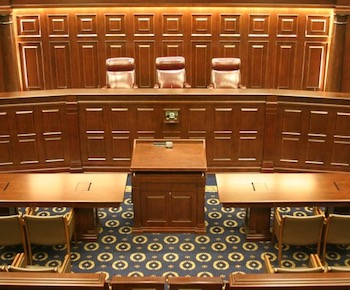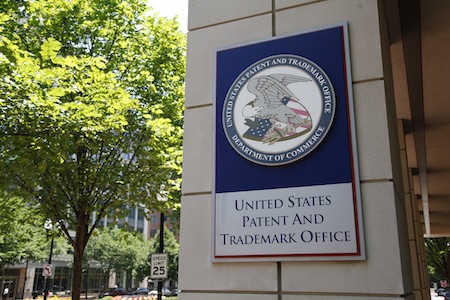CAFC Vacates Enhanced Damages Judgment Due to Preclusive Effect of Intervening PTAB Decisions
“Packet’s infringement case against NetScout remains pending and, thus, is not immune to the Board’s now-affirmed findings of unpatentability.”- CAFC
The U.S. Court of Appeals for the Federal Circuit (CAFC) issued a precedential decision today vacating and remanding with instructions to dismiss as moot a district court final judgment that granted enhanced damages for willful infringement to Packet Intelligence LLC. The appeal was brought by NetScout Systems, Inc. against Packet and relates to a co-pending case in which the CAFC today affirmed several decisions of the Patent Trial and Appeal Board (PTAB) holding all challenged claims of four of Packet’s patents unpatentable as obvious. Judge Stark authored the opinion.
Packet Intelligence is the owner of U.S. Patent Nos. 6,665,725 (the ’725 patent), 6,771,646 (the ’646 patent), 6,839,751 (the ’751 patent), and 6,954,789 (the ’789 patent), which are directed to methods and apparatuses for monitoring packets exchanged over a computer network.
The CAFC issued an earlier decision in the case in 2020, affirming-in-part and vacating-in-part the decision of the United States District Court for the Eastern District of Texas relating to three of the patents. The court affirmed the district court’s judgments on the issues of infringement, invalidity, and willfulness, but reversed with respect to pre-suit damages. Judge Reyna wrote separately, dissenting on the issue of patent eligibility under Section 101.
During the time the case was on remand, the PTAB issued final written decisions in inter partes reviews (IPRs) brought by third parties Juniper Networks, Inc. and Palo Alto Networks, Inc, finding all asserted claims of the Packet patents unpatentable as obvious. Packet appealed those decisions and the CAFC coordinated it so they would be considered by the same panel deciding the NetScout appeal.
After the Board issued the final written decisions, NetScout moved to dismiss Packet’s district court infringement case or, in the alternative, to stay the district court litigation until the conclusion of Packet’s appeal from the PTAB’s decisions. Packet opposed and the district court denied NetScout’s motion to dismiss or stay the case and entered an amended final judgment. Most relevant, the court denied NetScout’s request to reevaluate the factors it had originally considered in deciding to enhance damages.
On appeal to the Federal Circuit, NetScout argued that if the co-pending appeals from the PTAB are affirmed, the court must find that it would have “an immediate issue-preclusive effect,” leaving Packet unable to “collect on an outstanding monetary damages award for patent infringement.” Packet argued all the CAFC had to decide was if its 2020 decision “rendered this case sufficiently final such that it is immune to the Board’s subsequent determination of unpatentability.”
In its analysis, the CAFC explained that its decision in the Fresenius case is instructive. There, the Federal Circuit held that it was bound by John Simmons Co. v. Grier Bros. Co., 258 U.S. 82 (1922), which reasoned that a “district court must apply intervening legal developments affecting the asserted patent’s validity, even if the court of appeals already decided the validity issue the other way.” The CAFC also found there that “in order for a judgment to be ‘sufficiently final to prevent the application of’ an intervening unpatentability finding, ‘the litigation must be entirely concluded so that the cause of action against the infringer was merged into a final judgment [and is] one that ends the litigation on the merits and leaves nothing for the court to do but execute the judgment.”
Relying on that reasoning, the CAFC concluded that “Packet’s infringement case against NetScout remains pending and, thus, is not immune to the Board’s now-affirmed findings of unpatentability.” Since the previous decision remanded for the district court to excise pre-suit damages and enhanced damages related to pre-suit damages, it was clearly not at a stage that “leaves nothing for the court to do but execute the judgment,” wrote the CAFC.
Packet argued that the case should be distinguished from Fresenius and others because “this Court has already affirmed liability and damages and did not remand to resolve open damages issues with the possibility for further review by this Court.” However, the CAFC said the “impact of excision of pre-judgment damages on enhanced damages was an issue left open by our remand in Packet I” and that, in any case, “our precedents hold that remanded patent cases remain vulnerable to post-mandate developments concerning patentability, even if liability –including patent validity – has already been conclusively resolved by appellate review.”
The opinion went on to explain that the decision is consistent with VirnetX Inc. v. Apple Inc., (Fed. Cir. Mar. 31, 2023) (“VirnetX II”); Chrimar Sys., Inc. v. ALE USA Inc., (Fed. Cir. 2019); and XY, LLC v. Trans Ova Genetics, L.C., 890 F.3d 1282, 1294 (Fed. Cir. 2018). The court also said that, while Packet correctly noted that in Chrimar the CAFC noted it “might someday encounter a party engaged in ‘an abuse of the judicial process in the form of presentation of insubstantial arguments” to keep a case from becoming “final,” here, “NetScout’s appellate issues are not insubstantial.” Thus, the PTAB’s unpatentability decisions must be given final effect, said the CAFC, and the district court’s final judgment therefore vacated and dismissed as moot.
Eileen McDermott
Eileen McDermott is the Editor-in-Chief of IPWatchdog.com. Eileen is a veteran IP and legal journalist, and no stranger to the intellectual property world, having held editorial and managerial positions at […see more]







